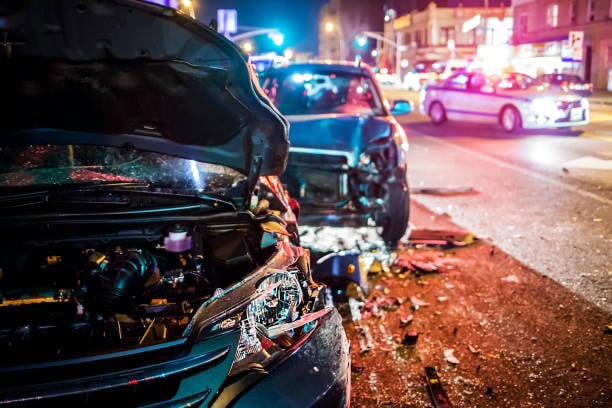Are you wondering how you can report dangerous driving in NSW? In this article, we will outline the process of reporting dangerous driving in NSW. Before we explore that topic, let’s first understand what is dangerous driving.
Dangerous driving or negligent driving can lead to road accidents and crashes. Dangerous driving involves driving without due care and attention that is reasonably expected from a driver. According to Section 52A the Crimes Act 1900 (NSW), dangerous driving is a punishable offence.
It outlines various types of dangerous driving and the penalties associated with the offences:
- Dangerous driving occasioning death; 10 years imprisonment maximum penalty
- Dangerous driving occasioning grievous bodily harm; 7 years imprisonment maximum penalty
- Aggravated dangerous driving occasioning death; 15 years imprisonment maximum penalty
- Aggravated dangerous driving occasioning grievous bodily harm; 11 years imprisonment maximum penalty
The Section also lists out circumstances in which a vehicle is involved in an impact occasioning the death or grievous bodily harm to a person:
- the vehicle overturning or leaving a road while the person is being conveyed in or on that vehicle (as a passenger or otherwise);
- an impact between any object and the vehicle while the person is being conveyed in or on that vehicle (whether as a passenger or otherwise),
- an impact between the person and the vehicle;
- the impact of the vehicle with another vehicle or an object in, on or near which the person is at the time of the impact,
- an impact with anything on, or attached to the vehicle,
- an impact with anything that is in motion through falling from the vehicle,
- the person falling from the vehicle, or being thrown or ejected from the vehicle, while being conveyed in or on the vehicle (whether as a passenger or otherwise),
- an impact between any object (including the ground) and the person, as a consequence of the person (or any part of the person) being or protruding outside the vehicle, while the person is being conveyed in or on the vehicle (whether as a passenger or otherwise).

What are Aggravating Circumstances Involved in Dangerous Driving?
Aggravating factors that the court may consider for a matter involving dangerous driving include:
- Showing off or competitive driving;
- Nature of Injuries inflicted and extent of injuries inflicted;
- Degree of substance abuse or intoxication;
- Erratic or aggressive driving;
- Number of people put at risk
- Length of the journey during which others were exposed to risk;
- Ignoring warnings;
- Degree of speed;
- Failing to stop;
- Degree of sleep deprivation; and
- Escaping police pursuit
What are Hoon Offences?
Hoon offence involve engaging in reckless and dangerous driving behaviour. According to NSW Government, the below offences are considered to be hoon offences:
- drag racing
- speed racing or street racing
- driving at dangerous speeds
- doing burnouts or doughnuts
- being involved in a police pursuit
Most hoon offences attract severe penalties and many offenders face immediate licence suspension.
Process to Report Dangerous Driving NSW
If you encounter dangerous driving in NSW, it’s crucial to prioritise safety. If it’s an emergency or the situation requires immediate attention, stop driving and dial Triple Zero (000) to connect with emergency services. For non-emergencies, you can report dangerous driving incidents to the local police by visiting your nearest police station or calling the Police Assistance Line at 131 444. Try to note down details such as the registration number.
Additionally, the NSW Police Force provides an online reporting tool for certain non-urgent incidents. Visit their official website and follow the instructions to submit your report. Provide detailed information about the incident, including the date, time, location, and a description of the dangerous driving behaviour. Your input can contribute to maintaining road safety in the community.
You can visit the Crime Stoppers website – https://nsw.crimestoppers.com.au/ – to report dangerous driving. According to NSW Crime Stoppers, there are 4 Ds that we all must be vigilant about:
- Dangerous Driving
- Drugs
- Drink
- Distracted

Seek Advice from Traffic Lawyers NSW
Getting a dangerous driving charge is a serious matter. Seeking legal advice when charged with dangerous driving in NSW is crucial for several reasons. Firstly, a legal professional can assess the specifics of your case, helping you understand the charges and potential consequences you may face. They can provide guidance on available defences and legal strategies.
Secondly, a lawyer can navigate the complex legal procedures, ensuring that your rights are protected throughout the process. They can help you gather evidence, challenge any inaccuracies, and negotiate with prosecutors on your behalf.
Moreover, a legal expert can provide valuable insights into the potential outcomes, such as fines, license suspension, or imprisonment, and work towards achieving the best possible result for your situation.
Ultimately, having legal representation increases the likelihood of a fair and just resolution to your case, emphasising the importance of seeking legal advice when facing charges of dangerous driving in NSW.
It is important to follow road rules. Moreover, running red lights, speeding and driving recklessly can be dangerous.
Contact Us
If you are looking for legal representation, or if you need help to report dangerous driving, contact our team today. We provide online consultations so you can reach out to us from outside NSW such as if you are in Victoria or Western Australia.
